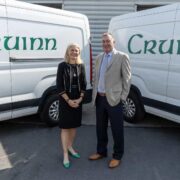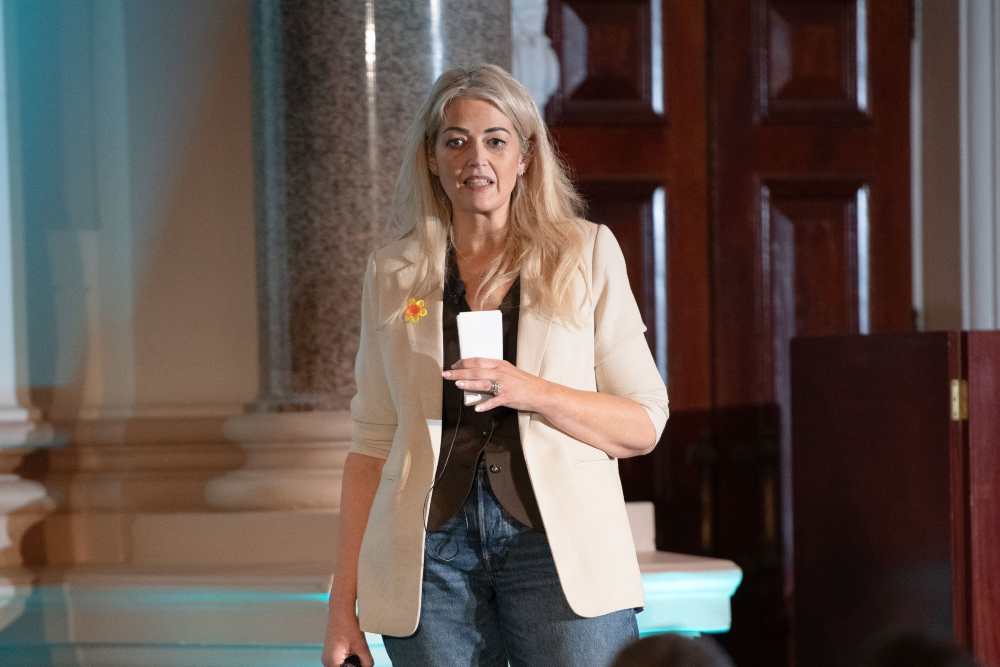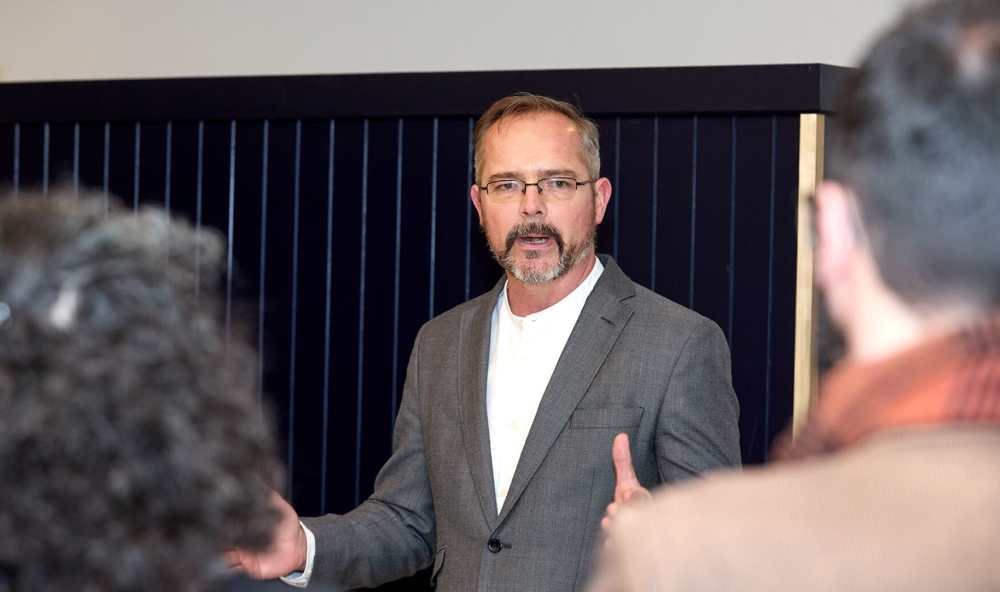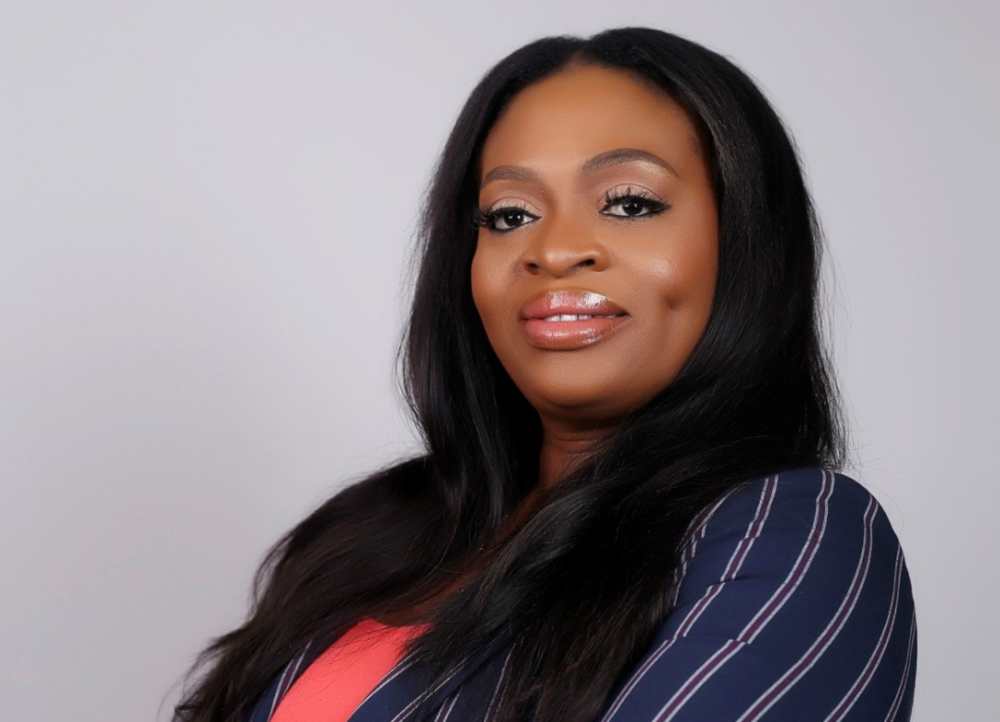Luke Murphy on how Waking Dreams Media helps tech founders tell compelling stories through video, scaling a creative business from college to client success.
When Luke Murphy started tinkering with FIFA videos on YouTube as a teenager, he didn’t expect it would lead to a growing business that now serves some of Ireland’s most complex start-ups and scale-ups.
Fifteen years later, Luke Murphy is doing exactly that as the founder of Waking Dreams Media, helping tech and life sciences companies tell their story through high-quality video.
“We’ve worked with some of Ireland’s most complex businesses over the last four years and we’ve developed a process for getting to the crux of their message”
His clients continue to use these videos years later to raise investment, win pitches and attract top talent.
Tell us about your background – what journey did you take to arrive at where you are today?
I’ve probably been making videos for about 15 years now. It started with a YouTube channel I had as a teenager. I was too embarrassed to share it with anyone at the time, it was just me making videos, but I learned how to edit through that experience. It also gave me confidence with speaking, which helped when it came to promoting a business later on.
I grew up in a technical family business. My parents ran a lab testing company, and I remember asking my dad a simple question about water testing. It would turn into a full lecture on inorganic chemistry! That taught me something important early on: experts often struggle to explain what they do in a way other people understand. And often those people are their customers.
I went on to study film at UCC and got involved in commercial work early. A friend from college brought me on a shoot in first year. It was a NASA science-for-kids event in Killarney. Since then, I’ve made hundreds of videos, worked with 60+ tech and life science founders, and even tried starting a tech company through an accelerator myself.
For the last four years, I’ve been focused on growing Waking Dreams Media. We’re now a team of four, myself and three part-time team members on operations, and we’re looking to keep scaling.
Why are you doing what you’re doing? What need are you meeting? What is your USP?
I think technical founders often struggle to explain the value of what they do, whether it’s in a pitch or a piece of marketing. We act as the translator. We’ve worked with some of Ireland’s most complex businesses over the last four years and we’ve developed a process for getting to the crux of their message.
“I think your appetite for risk has to match your ambition. Playing it safe doesn’t work if you want to grow”
When you ask a founder, “What value do you provide your customers?” you often get the wrong answer at first. But we know the follow-up questions to ask to get to the heart of it. What we’re really trying to figure out is: Why is this product simple, differentiated, useful, and credible? Once you’ve got that, you can tell a story that resonates.
Then we figure out the visuals; how to make that story tangible in a video format. The best proof is the results. One founder I worked with is still using their video two years later, even though the product has evolved. That video helped them raise over €800,000 and grow to a team of 15+. I like to think we played a small role in helping them articulate the vision.
How did you fund and start the business? And what are your growth plans?
Honestly, the business funded me more than I funded it. I started doing paid work during college, which helped me cover my expenses. Back then, I was hands-on. I was the videographer, I had the camera, I was doing everything.
I reinvested the money I earned into better equipment. In my second year of college, I bought my first camera. A big investment at the time, but it paid off in work. I even borrowed equipment from friends or from the UCC camera department in the early days. By the time I graduated, it was essentially a full-time job.
After college, the focus shifted to formalising the business. This meant bringing in systems, hiring people and scaling in a structured way. Now, we’re growing year on year and building a strong operational foundation for the future.
What or who has helped you most along the way? Who has been your greatest mentor or inspiration?
Definitely my parents. They were always supportive. My mother, who passed away a few years ago, was a brilliant businesswoman. She left a pharmacy job to start the family business so she could spend more time with her kids. That really inspired me; building a life that prioritises both family and meaningful work.
I also learned a huge amount from Eamon Curtin at Ignite in UCC. During one summer, I worked out of the office there and Eamon would regularly drop in for whiteboard sessions. He was great at stress-testing ideas and challenging your thinking just enough to help you grow.
And then there’s I now meet weekly. He was introduced to me by a client. Having someone you can check in with, talk through challenges, and reflect with, that’s been invaluable.
What is the greatest piece of business advice you’ve ever received?
There’s so much advice out there, but one recent piece really stuck. I was stressed out; trying to manage projects, hire new people, sell, market and create proposals all at once. Derek said, “Just focus on one thing at a time.” That simple advice helped me breathe.
Now, when I’m overwhelmed, I ask: what’s the most important thing I can do today? That’s how I made time to hire a new editor and it solved the bottleneck. It’s advice I come back to whenever I feel spread too thin.
What circumstances, in your opinion, mark the difference between success and failure in life or business?
I think your appetite for risk has to match your ambition. Playing it safe doesn’t work if you want to grow. I’m probably naturally risk-averse, but I’ve learned that success in business means finding the balance. This essentially comes down to creating opportunity while managing risk.
“When I look at the broader landscape in Ireland, I don’t think most businesses are using technology to its full potential. There’s definitely more conversation around AI than actual implementation”
If you’re not taking any risks, whether that’s hiring, investing or marketing, you’re probably not creating real opportunity. But if you’ve built a solid foundation, you can take smarter risks. That’s where growth comes from.
What has been the most challenging aspect of starting and growing your business?
I’d say staying motivated over the long arc of building something. There are definitely stressful weeks. You wonder: will this grow or stagnate? That uncertainty is tough.
I’ve tried to create some financial security for myself. That definitely helps with making long-term decisions. But the emotional side of building something from scratch? That’s the real challenge.
How did you navigate your business through the pandemic, and what lessons did you learn?
Waking Dreams Media is actually a Covid baby. We started in January 2021 during lockdown. So I don’t have a “before” reference point.
But even during restrictions, video was considered essential. It was how businesses communicated. That helped in the early days. I think the pandemic changed how people view video. Before, it was just “we need a camera.” After, it became “we need quality content that cuts through.”
Companies got scrappier. Some started producing more in-house content. So as external providers, we had to offer more value, including strategy, storytelling, impact. It forced us to level up, which was a good thing in the long run.
How has digital transformation influenced your scaling journey? And are Irish firms using technology to its full potential?
Digital tools have played a huge role in how I’ve grown Waking Dreams. A friend I shared a co-working space with once joked that I had a new tool or piece of software to recommend every time we grabbed a coffee. And he wasn’t wrong! I love software. I’m fascinated by how it’s built, branded and used. I think that curiosity actually feeds into my work: understanding how people buy software helps me create better video content that sells it.
I use a lot of tools myself to stay efficient for project management, editing, client collaboration, financial planning, and I’ve built internal systems around them. We’re probably a very tech-forward business, even for our size.
But when I look at the broader landscape in Ireland, I don’t think most businesses are using technology to its full potential. There’s definitely more conversation around AI than actual implementation. A lot of people in the business world have heard about AI agents and automation, but very few are applying it in meaningful ways. Even in large organisations, I’ve spoken to senior leaders who don’t yet have a plan for how AI will be integrated.
There’s also a cultural side to it. Ireland has a lot of traditional, often family-run businesses that aren’t necessarily in a hurry to adopt new tech. But the pressure of operations is changing that. Everyone wants to save time, do more with less and reduce stress on their teams. I think that’ll drive more adoption of genuinely useful tools.
So overall, I’d say we’re still catching up. But the shift is happening, and it’s picking up speed.
If you were to do it all over again, what would you do differently?
That’s a good question. It’s funny because if I knew then what I know now, I wouldn’t be the same person starting out.
But if I had to pick something, I’d say: try more things faster. I’m naturally risk-averse, so I tend to research a lot before jumping in. But the truth is, volume helps. You get better by doing, not just by planning.
“Be obsessed with your own business. Focus less on gathering general business advice and more on direct experience. Talk to customers. Watch your own sales calls. Analyse what’s working and why”
Recently, I spent a weekend listening back to 10 customer calls. I learned more about my business from those than I could have from watching 10 YouTube videos. That direct feedback is invaluable.
So I’d tell my younger self: be obsessed with your own business, not just business in general. Don’t build the identity of a business owner through content consumption alone. Talk to customers. Iterate. Act.
Who inspires you in business today? And how do you nurture talent in your organisation?
Ronan Murphy, our producer, is a great example. He sent me a cold email while he was still in college. He’d done the same film course I had. I saw a lot of myself in him. He started by shadowing me on shoots, and over time, took on more responsibility. Now he manages many productions himself.
Before I knew I was ready to scale, I started documenting everything. I recorded Loom videos and created internal systems. That made onboarding smooth.
I follow the approach Alex and Leila Hormozi talk about: I do it first, then show them, then we do it together, and then they do it solo. We have weekly check-ins and a feedback loop that helps us constantly improve.
I believe growth happens when people are given responsibilities that push them just beyond their comfort zone. The key is making sure the right support is in place so they can rise to the challenge.
What business book would you recommend?
One I really enjoyed was Alchemy by Rory Sutherland. It’s a fascinating read about the value of psychological thinking in business. We’re often overly logical in decision-making, trying to reduce all risk. But sometimes the best outcomes come from a little creative or irrational thinking.
That book gave me permission, in a way, to embrace uncertainty and invest in the kind of things you can’t always quantify right away like brand, storytelling, or experimentation.
What tools or technologies do you use to stay on track?
I use Notion for everything. It’s a sandbox for business tools, you can build your own systems, track projects, manage workflows etc. It’s all very drag-and-drop, so it’s easy to customise.
Alongside that, my calendar is probably the most important tool I use. I’ve even started thinking about merging my to-do list with my calendar. After all, all we have is time. A calendar shows you what’s realistic. A to-do list doesn’t.
What social media platforms do you prefer, and why?
I love YouTube because it allows for deep dives. You can spend hours learning from experts who are incredibly generous with what they share.
But for business? LinkedIn is definitely the most effective platform for us. That’s where our audience is. Having a strong presence there has opened up real opportunities and connections.
Finally, if you had advice for your 21-year-old self, knowing what you know now, what would it be?
I’d repeat what I said earlier: be obsessed with your own business. Focus less on gathering general business advice and more on direct experience. Talk to customers. Watch your own sales calls. Analyse what’s working and why.
There’s no substitute for building with your own hands. Don’t just consume. Create.
-
Bank of Ireland is welcoming new customers every day – funding investments, working capital and expansions across multiple sectors. To learn more, click here
-
For support in challenging times, click here
-
Listen to the ThinkBusiness Podcast for business insights and inspiration. All episodes are here. You can also listen to the Podcast on:
-
Spotify
-
SoundCloud
-
Apple






